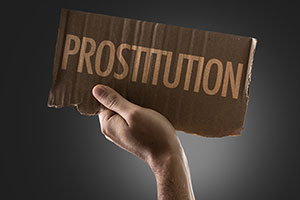The Court of Appeals for the Third Circuit rejected the government’s contention that its expert witness in the “culture of prostitution” should be permitted to testify in an interstate prostitution trial. While the appellate court agreed with the district court that the expert testimony was not relevant, it also agreed that the district court might be entitled to admit the testimony if the defense implies that the prostitutes were not induced to traveled across state lines by the defendants.
Facts of the Case
Four men from Chambersburg, Pennsylvania were charged with operating an interstate prostitution ring using underage girls. News reports state that the men are accused of operating an escort service that advertised its services on an internet site that features classified advertising.
The men reportedly furnished prostitutes to clients in Maryland, Virginia, West Virginia, Florida, Rhode Island and Washington, D.C. Transporting individuals across state lines for the purpose of prostitution is a federal crime. It is a more serious crime when the individuals are minors. The interstate nature of the activity allowed the government to charge the men with a number of federal sex trafficking offenses.
Police investigators claim that the men compensated the prostitutes, some of whom were teenage girls, with drugs rather than cash. The ring allegedly operated from 2012 until the men were arrested in 2015.
Expert Witness
The government notified the defense that it intended to call Dr. Sharon Cooper as an expert witness to provide background on the culture of sex trafficking. The government did not claim that Cooper’s testimony would prove any fact required to convict the four men. Rather, the government argued that the testimony would “de-mystify” the prostitution subculture and would provide “education and context” for the jury.
The defense objected that the proposed testimony would not be relevant. For that reason, it asked the court to bar the government from presenting Cooper’s testimony. The district court agreed that the testimony was not relevant, although it ruled that the testimony might become relevant after the government presented evidence of the alleged crimes.
The U.S. Court of Appeals for the Third Circuit agreed to hear the government’s pretrial appeal of the district court’s ruling.
Court of Appeals’ Decision
The Court of Appeals affirmed the district court’s ruling after reviewing the decision under the Daubert standard. Daubert requires the district court judge to act as a gatekeeper to prevent the jury from hearing expert testimony that does not satisfy the dictates of Rule 702 of the Federal Rules of Evidence.
The Court noted that Rule 702 conditions the admissibility of expert testimony on three standards: the expert must be qualified; the expert’s testimony must be reliable; and the testimony must assist the jury.
Most Daubert challenges go to question of reliability. In this case, however, the expert’s proposed testimony did not satisfy the third standard because it would not have helped the jury decide whether the defendants were guilty.
The third standard requires expert testimony to be relevant, but the Court noted that the standard “is higher than bare relevance.” To be helpful, the expert’s scientific or technical expertise must help the jury understand the facts or decide a disputed issue. Expert testimony that is not related to a fact that the jury must decide is not helpful.
In this case, the disputed issue was whether the defendants were guilty of sex trafficking. On its face, the expert’s testimony about the subculture of prostitution would not help the jury decide whether the defendants transported women across state lines with the intent that they would engage in prostitution.
Potential Admissibility
The government relied on a decision from a different circuit that affirmed a conviction after an expert testified about the reasons why prostitutes might submit to the direction of a pimp. The testimony was relevant only because cross-examination of the prostitutes implied that they traveled with the defendant voluntarily and that they were working independently, not at the direction of the defendant. The expert testimony rebutted the inference that the women would not have remained with the defendant if, as they claimed, he abused them and forced them to travel across state lines to engage in prostitution.
Relying on other federal court decisions as precedent, the appellate court decided that it would be premature to allow the expert’s testimony unless and until it became relevant. If cross-examination of the prostitutes or other evidence implies that no person in the position of the prostitutes would have submitted to the defendants’ directions, expert testimony to explain why prostitutes obey their pimps might become relevant. Still, the judge will need to decide whether an expert’s explanation of the behavior of prostitutes will add anything helpful to the prostitutes’ explanation of their own behavior.




